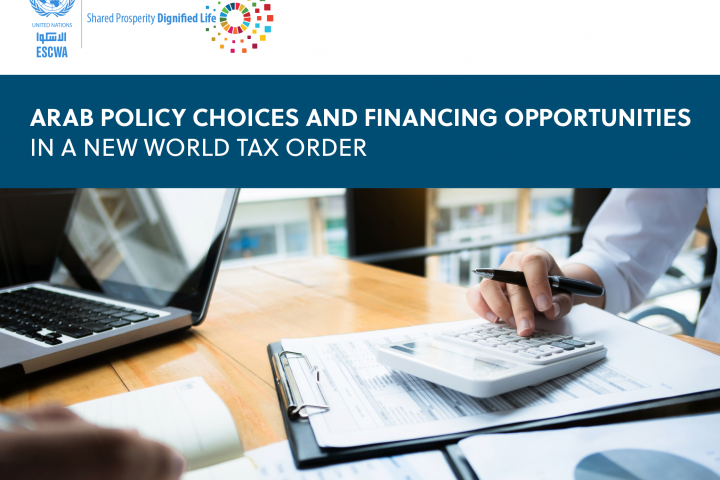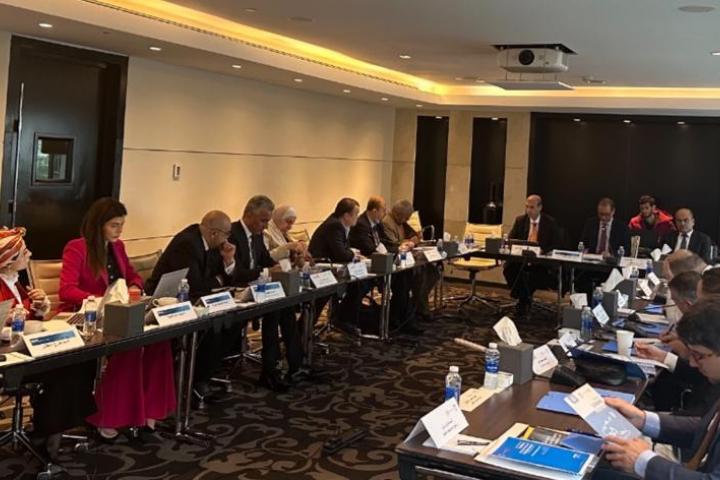“Economic Governance series: Competition and Regulation in the Arab Region” is the title of the report launched by ESCWA on 8 December 2015 at the UN House, Beirut.
Following a welcoming address by ESCWA Director of the Economic Development and Integration Division Mohamed El Hacene, a keynote address by Lebanese Minister of Economy and Trade Alain Hakim was delivered by his economic advisor Jean Tawile, who said: “Legislations governing competition and preventing monopoly have become milestones for any successful economic activity driving growth. Regulating the business environment and activities, these legislations aim to reduce the scatteredness of traders allowing them to have control over the market. Furthermore, these legislations are targeted to achieve economic and social justice, and to promote competitiveness among traders, which in itself allows traders in different fields the right to enter the market and to exercise the economic right of offer without restrictions. It also gives customers the right to demand goods and services provided for them at the best prices, specifications and conditions. "
Tawile went on to add that "besides these competition laws, there is a growing need to improve the business environment in general, which in turn will contribute to the stimulation of competitive and efficient markets. Based on this, the most prominent achievements of the ministry during this past year have been represented in the launch of the Lebanese SME strategy under the title" Road Map to 2020." This strategy seeks to strengthen the establishment of active and competitive small and medium-sized enterprises, considered as one of the most important components of the Lebanese economy, thus playing a key role in improving and strengthening the business environment, developing an economy with high added value in the country.”
Intini
The report was then be presented by Vito Intini, Chief of Economic Governance and Planning Section at ESCWA who said: “the report focuses on the benefits and importance of effective antitrust and competition laws as well as the need for well functioning market regulators in the Arab region and that to enhance business environment, foster investments, improve economic performance and drive growth. Moreover, the report also provides an assessment of the status in the region and highlights major challenges: drafting, adoption and enforcement of legislation, the different models pursued by individual countries in terms of structuring the relationship between competition and regulation authorities, exemptions and so on.”
Intini said that the report closes with policy recommendations that target the improvement of the relationship between competition concerns and effective sectoral regulations as well as recommendations towards enhancing effectiveness of competition enforcement and institutional designs of antitrust and market regulators regimes.
Focusing on the role of competition policy and regulation in the Arab region, the report is part of a series of activities on the topic of “Measuring Economic Governance in the context of National Development Planning” undertaken at ESCWA.
****
Find ESCWA news on:
Website: www.unescwa.org
Facebook: www.facebook.com/unescwa
Twitter: @ESCWACIU



